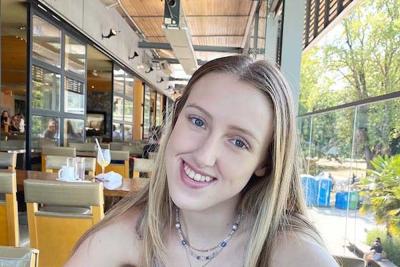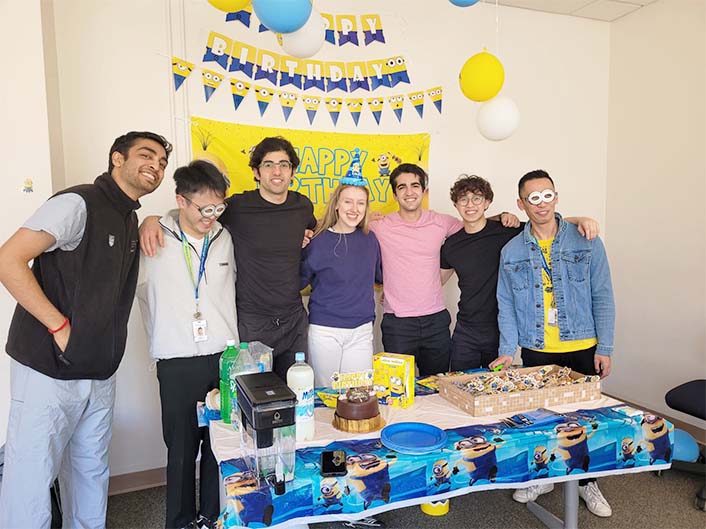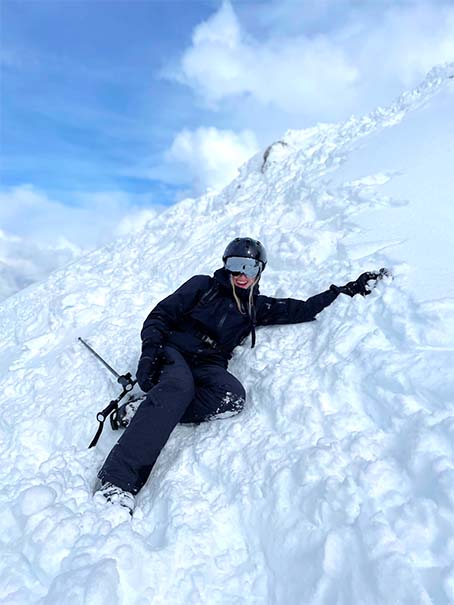Featured Student: Nicole Cormack
June 5, 2023

June 5, 2023

I am a Microbiology/Immunology student.
Co-op intrigued me with the breadth of opportunities it offers for students and for the unique opportunities it presents to “test drive” your career.
Being a student, it’s often difficult to access the inner workings of the job market and gain exposure to different opportunities across the field.
However, co-op serves as an access point into a range of diverse positions, specifically intended to align with student skills.

I’ve worked two terms as a Research Assistant at the Bell Lab situated at the Ottawa Hospital Research Institute.
I had the opportunity to work on exploring cancer research, with emphasis on the study of oncolytic viruses. Specifically, my work focused on determining which oncolytic viruses displayed the greatest tendency to evade neutralization and thus promote effectivity in tumor cells.
Currently, I’m working at the Emergency Medicine Department located at Vancouver General Hospital as a Clinical Assistant. I routinely screen patient eligibility for a Phase IV Atrial Fibrillation study through analysis of patient medical charts and history. Furthermore, I have the opportunity to speak with Emergency Physicians and patients about treatment plans through the explanation of the clinical study concepts, as well as monitor patient activity post drug administration.
Although it’s hard to narrow in on a specific experience, I think that my favourite part of co-op has been the new connections I’ve made along the way.
The collaboration with other students in Ottawa made the extensive lab days much more enjoyable.
At UBC Emergency Medicine, my coworkers have made each day exciting, despite the various stresses which the ED presents. I am beyond grateful for the positive impact they’ve had. Along with the work ski-trips, this summer I’m super excited for the numerous hiking trips we have planned all together and am sure that these connections will last beyond my co-op term!

My biggest challenge in co-op has been the rapid integration into the Emergency Department at VGH.
Working on a clinical study which carries such critical weight for a patient’s outcome, it was initially challenging to familiarize myself with the breadth of medical terms which I encountered through the screening processes.
Furthermore, speaking with Emergency Physicians regarding study details was a secondary challenge, as immense conceptual understanding of the treatment details is vital, considering the time sensitivity of many of these patients’ care.
To overcome these challenges, I took it upon myself to independently research the treatment options available, such that I am prepared to explain the drug mechanisms of action to the EPs and ensure a treatment plan can be established in a time-sensitive manner.
Furthermore, the collaboration with my fellow co-op students and the incredibly supportive supervision of the project lead played a massive role in improving confidence in this medically advanced environment!
Co-op played an instrumental role in developing my professional communication skills and my ability to thrive in a dynamic, fast-paced environment.
Integrating into these new roles has enhanced my confidence and ability to communicate effectively to physicians and principal investigators, regarding professional topics, and has allowed me to improve my ability to navigate a breadth of high-intensity situations.
Furthermore, this experience expanded my understanding of the healthcare system and has been vital in my appreciation for the complexities of this department, as I plan to pursue a career in medicine.
Working in this emergency-based setting as a student expanded my career mindset and provided me with incredibly valuable insights into the healthcare field.
This fast-paced environment exposed me to the broad range of medical conditions, patient populations and range of healthcare professionals which exist. Specifically, I have a greater appreciation for the complexity and interconnectedness of this system, as the well-being of patients and treatment success depends entirely on the collaborative nature of different professionals. The overall functionality of this system is entirely dependent on effective communication and coordination among so many individuals, to ensure delivery of adequate care.
As for my career, this position solidified my passion for healthcare work, with an emphasis on working in a dynamic environment that caters to a range of presenting medical conditions.
Diversify your co-op experience!
This is a really unique period of our lives, where we have the opportunity to experiment with a range of different jobs and solidify our understanding of what our career passions are.
For me, I am incredibly grateful that I got the opportunity to perform two different 8-month co-op positions in incredibly different workplace settings.
Being able to work in an academic lab, along with a clinical position in the ER, I developed a completely different understanding of what my passions are and in which environments I thrive.
Additionally, proactiveness is key for co-op. Using these experiences as an opportunity to ask questions, learn new skills and consistently seek out feedback will undeniably enhance your experience!
Following graduation, I’m looking forward to hopefully pursuing my MD and am excited at the internships and volunteer opportunities which lie ahead of this journey!
We honour xwməθkwəy̓ əm (Musqueam) on whose ancestral, unceded territory UBC Vancouver is situated. UBC Science is committed to building meaningful relationships with Indigenous peoples so we can advance Reconciliation and ensure traditional ways of knowing enrich our teaching and research.
Learn more: Musqueam First Nation